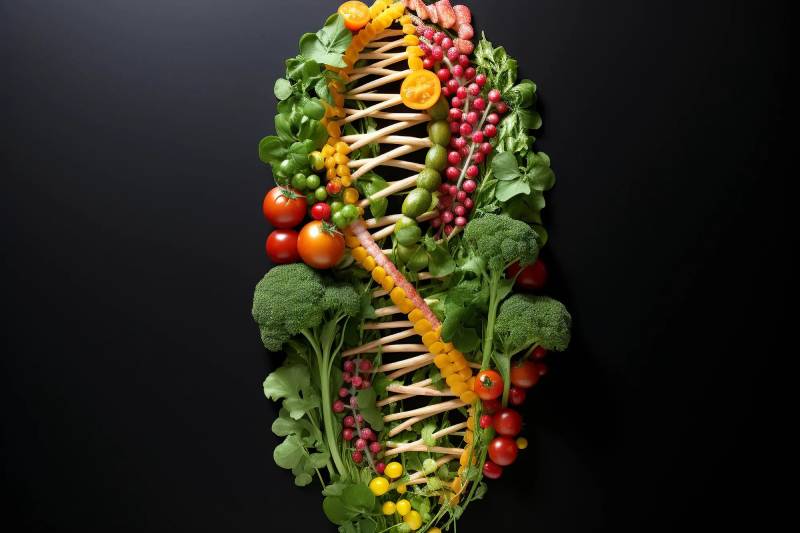A groundbreaking study conducted by a team of researchers has unveiled a potential genetic link to vegetarianism. In their quest to understand why individuals opt for plant-based diets, these scientists analyzed a vast pool of genetic data comprising 330,000 genomes. While vegetarianism has deep historical roots, it remains a lifestyle choice embraced by a relatively small portion of the population in contemporary times. This decision is often driven by ethical concerns related to animal welfare and environmental sustainability. But could there be an inherited component to this dietary preference?
The research, spearheaded by Nabeel Yaseen, a pathology professor at Northwestern University in the United States, delved into the UK Biobank, a massive biomedical database. Yaseen’s team meticulously compared the genetic profiles of 5,324 strict vegetarians with those of 329,455 non-vegetarians, all falling within the 40 to 69 age group. Their objective was to identify specific genetic markers associated with strict vegetarianism, with “loci” denoting the positions of genes on chromosomes. The researchers made a significant breakthrough by pinpointing three genes significantly linked to vegetarianism and identifying 31 other genes that potentially play a role in this dietary choice.
These groundbreaking findings were published in the journal PLoS ONE. The study underscored that genetic variants influence dietary preferences through a complex interplay involving metabolism, physiological effects, and taste perception. Taste perception is particularly influential in determining the liking and consumption of different foods. This research thus offers new avenues for exploration and underscores the need for further investigation to fully grasp the intricate relationship between genetics and vegetarianism.
The researchers also hypothesize about the potential roles these genes may play in influencing vegetarianism. Some of these genes may be related to lipid (fat) metabolism and its impact on brain function, suggesting that meat may contain unique fatty components that vegetarians can synthesize internally, while others might need to obtain these components from a meat-based diet.
This study is a part of the broader field of genome-wide association studies (GWAS), which emerged in the mid-2000s. GWAS is a scientific approach that seeks to identify genetic variations associated with specific traits, although it can establish correlation rather than causation.
Nabeel Yaseen expressed hope that their research would inspire further exploration into the genetics and physiology of vegetarianism. Such investigations might pave the way for more personalized dietary recommendations and perhaps contribute to the development of superior meat alternatives in the future. This research marks a significant step toward unraveling the intricate genetic tapestry that influences our dietary choices, shedding light on the underlying factors that make some individuals inclined toward plant-based diets.
The information contained in this post is for general information purposes only. The information is provided by Researchers Unearth Genetic Clues To Vegetarianism and while we endeavour to keep the information up to date and correct, we make no representations or warranties of any kind, express or implied, about the completeness, accuracy, reliability, suitability or availability with respect to the website or the information, products, services, or related graphics contained on the post for any purpose.


